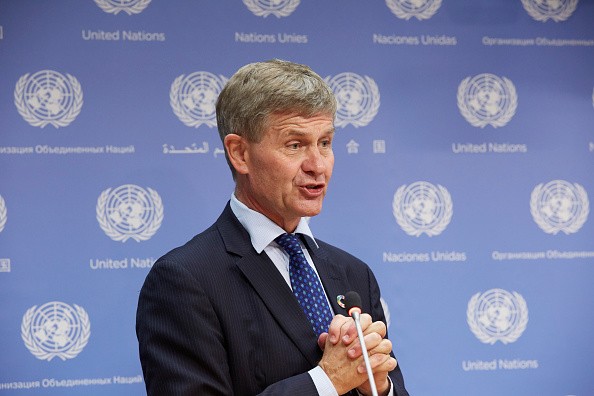The United Nations Environment Programme Chief announced that India, EU and China will soon join hands with the program and sign the Paris Pact, which is aimed to provide recommendations for actions that should be undertaken without delay at the most relevant scale for water management adaptation to climate change.
India, EU and China were taken as a second choice in the Paris Pact initially. But after President Donald Trump said some threatening statements, UNEP has decided to join hands with the three countries.
Erik Solheim, executive director of UNEP, said: "I am optimistic of whatever happens in the White House. India, China and the European Union and other major players have decided they will move (go ahead). They are long past from the point of return. The idea is now to provide global leadership."
"The industry also will move whatever happens in the White House. Companies such as Apple, Google and Microsoft will participate. Also, companies like WalMart will do it for customers and their benefit," he added.
In the recent interview with the media house, Solheim revealed that Indian Railways has joined hands with Paris and UNEP to reduce the excess water consumption in the world by 20 percent by 2030.
They are also planning on setting up waste management points at different railway stations, as well as a plan for promoting the use of green technology in India.
Indian Railways, despite it being the largest consumer of water and electricity in the country, has contributed a lot to the green environment.
“The partnership offers greater opportunities for environment conservation in collaboration with UNEP,” said Suresh Prabhu, the current Railway Minister of India.
The railways recently signed a letter of intent with UNEP. This is a joint cooperation for environmental conversation, which will help Railways achieve its green target as the national transporter.
According to Solheim, this agreement is focused on three main environment problems, which are waste management, water consumption reduction, and sustainable public procurement.



























